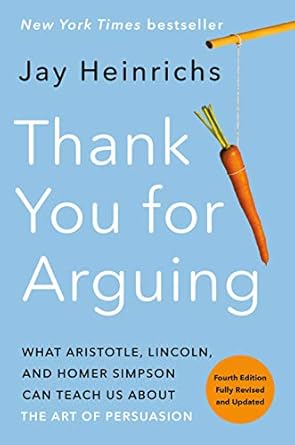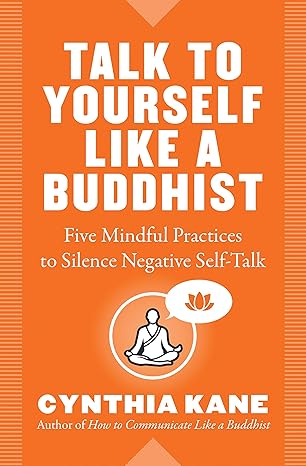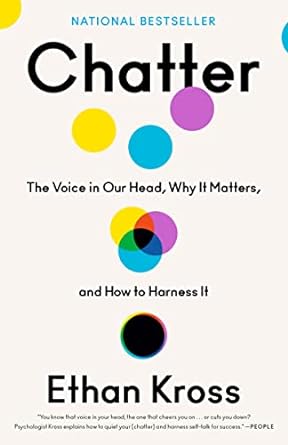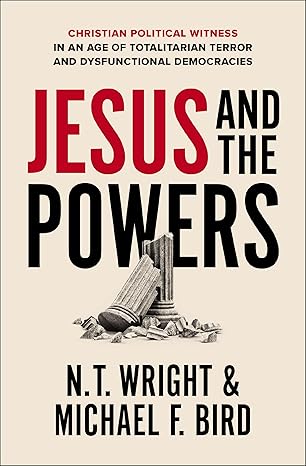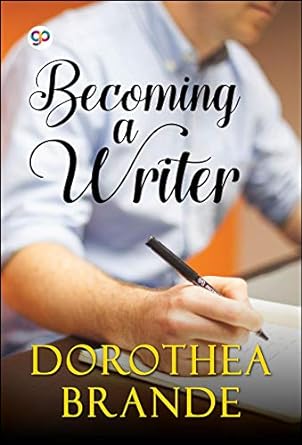
Becoming a Writer
Dorothea Brande's 'Becoming a Writer' remains evergreen decades after it was first written. Brande believed passionately that although people have varying amounts of talent, anyone can write. She also insists that writing can be both taught and learned. This is Dorothea Brande's legacy to all those who have ever wanted to express their ideas in written form. A sound, practical, inspirational and charming approach to writing, it fulfills on finding 'the writer's magic.'
BEST DEALS
About the Author
American author, lecturer and magazine editor, Dorothea Brande, was the youngest of five children born to Frederick S. and Alice P. Thompson of Chicago, Illinois. Alice Dorothea Alden Thompson was born in Englewood, a Chicago community, on 12 January, 1892. Both of her parents were originally from Maine and had previously lived in Delaware where her three oldest siblings were born. Her father was employed as a manager at local business in the Chicago area. Brande attended the Universities of Michigan and Chicago, earning her Phi Beta Kappa key at the former.
She went on to work as a newspaper reporter in Chicago and later as circulation manager for American Mercury magazine during the time of H.L. Mencken and George Jean Nathan. In the 1930s she became an associate editor of Bookman magazine and later its successor (1934), the American Review. In the years to come Brande would also operate a nationwide correspondence school for aspiring writers and tour on the lecture circuit. In 1916 she married fellow Chicago newspaper reporter Herbert Brande.
Herbert would later gain some notoriety as an editorial writer. Their marriage ended in divorce sometime before 1930. In 1936 she married Seward B. Collins (1899-1952), who at the time was American Review's editor. Her inspirational book, 'Wake Up and Live' (1936) was written during the Great Depression and was a best seller and her most successful book. She was also the author of 'Becoming a Writer' (1934), 'Most Beautiful Lady' (1935), 'Letters to Philippa' (1937), 'My Invincible Aunt' (1938) and others.
Read Sample
Chapter 1 : The Four Difficulties
So, having made my apologies and stated my belief, I am going, from now on, to address myself solely to those who hope to write.
There is a sort of writer’s magic. There is a procedure which many an author has come upon by happy accident or has worked out for himself which can, in part, be taught. To be ready to learn it you will have to go by a rather roundabout way, first considering the main difficulties which you will meet, then embarking on simple, but stringently self-enforced exercises to overcome those difficulties. Last of all you must have faith, or the curiosity, to take one odd piece of advice which will be unlike any of the exhortations that have come your way in classrooms or in textbooks.
In one other way, beside the admission that there is an initiate’s knowledge in writing, I am going to depart from the usual procedure of those who offer handbooks for young authors. Open book after book devoted to the writer’s problems; in nine cases out of ten you will find, well toward the front of the volume, some very gloomy paragraphs warning you that you may be no writer at all, that you probably lack taste, judgment, imagination, and every trace of the special abilities necessary to turn yourself from an aspirant into an artist, or even into a passable craftsman. You are likely to hear that your desire to write is perhaps only an infantile exhibitionism, or to be warned that because your friends think you are a great writer (as if they ever did!) the world cannot be expected to share that fond opinion. And so on, most tiresomely. The reasons for this pessimism about young writers are dark to me. Books written for painters do not imply that the chances are that the reader can never be anything but a conceited dauber, nor do textbooks on engineering start out by warning the student that because he has been able to make a grasshopper out of two rubber bands and a matchstick he is not to think that he is likely ever to be an honor to his chosen profession.
Perhaps it is true that self-delusions most often takes the form of a belief that one can write; as to that I cannot say. My own experience has been that there is no field where one who is in earnest about learning to do good work can make such enormous strides in so short a time. So I am going to write this book for those who are fully in earnest, trusting to their good sense and their intelligence to see to it that they learn the elements of sentence and paragraph structure, that they already see that when they have chosen to write they have assumed an obligation toward their reader to write as well as they are able, that they will have taken (and are still taking) every opportunity to study the masters of English prose writing and that they have set up an exigent standard for themselves which they work without intermission to attain.
It may be that it is only my extraordinary good fortune that I have met more writers of whom these things are true than deluded imbecile scribblers. But tragically enough I have met a number of sensitive young men and women who have very nearly been persuaded, because they had come up against some of the obstacles to writing which we are shortly going to consider, that they were unfit to write at all. Sometimes the desire to write overcame the humiliation they had to undergo; but others dropped back into a life with no creative outlet, thwarted, and restless. I hope this book persuades some who are hesitating on the verge of abandoning writing to make a different decision.
In my experience four difficulties have turned up again and again. I am consulted about them far oftener than I am asked for help in story structure or character delineation. I suspect that every teacher hears the same complaints, but that, being seldom a practicing author, he tends to dismiss them as out of his field, or to see in them evidence that the troubled student has not the true vocation. Yet it is the very pupils who are most obviously gifted who suffer from these disabilities, and the more sensitively organized they are the higher the hazard seems to them. Your embryo journalist or hack writer seldom asks for help of any sort; he is off after agents and editors while his more serious brother-in-arms is suffering the torments of the damned because of his insufficiencies. Yet instruction in writing is oftenest aimed at the oblivious tradesman of fiction, and the troubles of the artist are dismissed or overlooked.
The Difficulty of Writing At All
First there is the difficulty of writing at all. The full, abundant flow that must be established if the writer is to be heard from simply will not begin. The stupid conclusion that if he cannot write easily he has mistaken his career is sheer nonsense. There are a dozen reasons for the difficulty which should be canvassed before the teacher is entitled to say that he can see no signs of hope for this pupil.
It may be that the root of the trouble is youth and humility. Sometimes it is self-consciousness that stems the flow. Often it is the result of misapprehensions about writing, or it arises from an embarrassment of scruples; the beginner may be waiting for the divine fire which he has heard to glow unmistakably, and may believe that it can only be lighted by a fortuitous spark from above. The particular point to be noted just here is that this difficulty is anterior to any problems about story structure or plot building, and that unless the writer can be helped past it there is very likely to be no need for technical instruction at all.
The “One-Book Author”
Second, and far more often than the layman would believe, there is the writer who has had an early success but is unable to repeat it. Here again there is a cant explanation which is offered whenever this difficulty is met: this type of writer, we are assured, is a “one-book author”; he has written a fragment of autobiography, has unburdened himself of his animus against his parents and his background, and, being relieved, cannot repeat his tour de force. But obviously he does not consider himself a one-book author, or we should hear nothing more from him. Moreover, all fiction is, in the sense used here, autobiographical, and yet there are fortunate authors who go on shaping, recombining, and objectifying the items of their experience into a long series of satisfactory books or stories. No; he is right in considering the sudden stoppage of his gift a morbid symptom, and right, usually, in thinking it can be relieved.
It is evident, if this writer had a deserved success, that he already knows something, presumably a great deal, of the technical end of his art. His trouble is not there, and, except by happy accident, no amount of counsel and advice about technique will break his deadlock. He is, in some ways, more fortunate than the beginner who cannot learn to write fluently, for at least he has given evidence of his ability to set down words in impressive order. But his first impatience at being unable to repeat his success can pass into discouragement and go on to actual despair; and an excellent author may be lost in consequence.
The Occasional Writer
The third difficulty is a sort of combination of the first two: there are writers who can, at wearisomely long intervals, write with great effectiveness. I have had a pupil whose output was one excellent short story each year—hardly enough to satisfy either body or spirit. The sterile periods were torture to her; the world, till she could write again, a desert waste. Each time she found herself unable to work she was certain she would never repeat her success, and, on first acquaintance, she very nearly persuaded me of it.
But when the cycle was lived through from start to finish, she always wrote again, and wrote well.
Here again, no technical instruction can touch the difficulty. Those who suffer from these silences in which not one idea seems to arise, not one sentence to come irresistibly to the mind’s surface, may write like artists and craftsmen when they have once broken the spell. The teacher-consultant must form a definite idea of the root of the trouble and give counsel accordingly. It may be, again that some notion of waiting for the lightning of inspiration to strike is behind the matter. Often it is the result of such ideals of perfection as can hardly bear the light of day. Sometimes, but rarely, a kind of touchy vanity is at work, which will not risk any rebuff and so will not allow anything to be undertaken which is not assured in advance of acceptance.
The Uneven Writer
The fourth difficulty actually has a technical aspect: it is the inability to carry a story, vividly but imperfectly apprehended to a successful conclusion. Writers who complain of this are often able to start a story well, but find it out of control after a few pages. Or they write a good story so dryly and sparely that all its virtues are lost. Occasionally they can motivate their central action adequately, and the story carries no conviction.
It is quite true that those who find themselves in this pass can be greatly helped by learning about structure, about the various forms which the story may take, of the innocuous “tricks of the trade” which will help a story over the stile. But even here the real difficulty has set in long before the story form is in question. The author has not the self-confidence necessary to present his idea well, or he is too inexperienced to know how his characters would act in real life, or he is too shy to write as fully and emotionally as he needs to write if his story is to come to life. The writer who turns out one weak, embarrassed, or abruptly told story after another obviously needs something more than to have his individual manuscripts criticized for him.
As soon as possible he must learn to trust his own feeling for the story and to relax in the telling, until he has learned to use the sure, deft stroke of the man who is master of his medium. So even this dilemma comes down, after all, to being a trouble in the writer’s personality rather than a defect in his personal equipment.
The Difficulties Not in Technical Equipment
Those are the four difficulties oftenest met at the outset of an author’s writing life. Almost everyone who buys books on fiction writing, or takes classes in the art of the short story, suffers from one or another of these troubles, and until they have been overcome he is able to get very little benefit from the technical training which will be so available valuable to him later. Occasionally writers are stimulated enough by the classroom atmosphere to turn out stories during the course; but they stop writing the moment that stimulus is withdrawn. An astonishing number who really want ardently to write are unable to do even assigned themes, yet they turn up hopefully—sometimes year after year. Obviously they are looking for help that is not being given them; and obviously they are in earnest—ready to spend what time, effort, and money they can to emerge from the class of novices and “yearners” and take their place among productive artists.
Chapter 2 : What Writers are Like
If these are the difficulties, then we must try to cure them where they arise—in the life and attitudes and habits, in the very character itself. After you have begun to see what it is to be a writer, after you learn how the artist functions and also learn to act in the same way, after you have arranged your affairs and your relations so that they help you instead of hinder you on your way toward the goal you have chosen, those books on your shelves o the technique of fiction, or those others which set up models of prose style and story structure for emulation, will look quite different to you, and be infinitely more helpful.
This volume is not intended to replace those books on craftsmanship.
There are some handbooks so valuable that no writer should be without them. In the appended bibliography I give the titles of those I have found most helpful for myself and for my pupils; I have no doubt that the list could be doubled or trebled to advantage. This book is not even a companion volume to such works as those; it is a preliminary to them. If it is successful it will teach the beginner not how to write, but how to be a writer; and that is quite another thing.
Cultivating a Writer’s Temperament
First of all, then, becoming a writer is mainly a matter of cultivating a writer’s temperament. Now the very word “temperament” is justly suspect among well-balanced persons, so I hasten to say that it is no part of the program to inculcate a wild-eyed bohemianism, or to set up moods and caprices as necessary accompaniments of the author’s life. On the contrary; the moods and tempers, when they actually exist, are the symptoms of the artist’s personality gone wrong—running off into waste effort and emotional exhaustion.
I say “when they actually exist,” for much of the bumptious idiocy which the average man believes is an inalienable part of the artist’s makeup has no being except in the eye of the beholder. He has heard tales of artists all his life, and very frequently he really believes “poetic license” to mean that the artist claims the right to ignore every moral code which inconveniences him. What the non-writer thinks about the artist would be of little account if it did not influence those who would like to write; they are persuaded against their will and their better sense that there is something fearful and dangerous in an artist’s life, and some of the very shyness which we have seen as a mischief-maker comes from their giving too much credence to such popular notions.
False and Real Artists
After all, very few of us are born into homes where we see true examples of the artistic temperament, and since artists do certainly conduct their lives—necessarily—on a different pattern from the average man of business, it is very easy to misunderstand what he does and why he does it when we see it from the outside. The picture of the artist as a monster made up of one part vain child, one part suffering martyr, and one part boulevardier is a legacy to us from the last century, and a remarkably embarrassing inheritance. There is an earlier and healthier idea of the artist than that, the idea of the genius as a man more versatile, more sympathetic, more studious than his fellows, more catholic in his tastes, less at the mercy of the ideas of the crowd.
The grain of truth in the fin de siècle notion, though, is this: the author of genius does keep till his last breath the spontaneity, the ready sensitiveness, of a child, the “innocence of eye” that means so much to the painter, the ability to respond freshly and quickly to new scenes, and to old scenes as though they were new; to see traits and characteristics as though each were new-minted from the hand of God instead of sorting them quickly into dusty categories and pigeonholing them without wonder or surprise; to feel situations so immediately and keenly that the word “trite” as hardly any meaning for him; and always to see “the correspondences between things” of which Aristotle spoke two thousand years ago. This freshness of response is vital to the author’s talent.
The Two Sides of a Writer
But there is another element to his character, fully as important to his success. It is adult, discriminating, temperate, and just. It is the side of the artisan, the workman, and the critic rather than the artist. It must work continually with and through the emotional and childlike side, or we have no work of art. If either element of the artist’s character gets too far out of hand the result will be bad work, or no work at all. The writer’s first task is to get these two elements of his nature into balance, to combine their aspects into one integrated character. And the first step toward that happy result is to split them apart for consideration and training!
Dissociation Not Always Psychopathic
We have all read a great many Sunday “feature stories,” magazine articles, and books of popularized psychology; so our first impulse is to shy violently away from the words “dissociation of personality.” A dual personality, to the reader who has a number of half-digested notions about the constitution of the mind, is an unlucky fellow who should be in a psychopathic ward; or, at the happiest, a flighty, hysterical creature. Nevertheless, every author is a very fortunate sort of dual personality, and it is this very fact that makes him such a bewildering, tantalizing, irritating figure to the plain man of affairs who flatters himself that he, at least, is all of a piece. But there is no scandal and no danger in recognizing that you have more than one side to your character. The journals and letters of men of genius are full of admissions of their sense of being dual or multiple in their nature: there is always the workaday man who walks, and the genius who flies. The idea of the alter ego, the other self, or higher self, recurs wherever genius becomes conscious of its own processes, and we have testimony for it in age after age.
Everyday Examples of Dual Personality
Indeed, the dual personality of the genius is almost a commonplace. As a matter of fact, it is a commonplace for all of us, to some extent. Everyone has the same experience of acting with a decision and neatness in an emergency which seem later to him to savor of the miraculous; this was the figure which Frederick W. H. Myers used to convey his idea of the activity of genius. Or there is the experience of the “second wind” that comes after long grinding effort, when suddenly fatigue seems to drop away and a new character to arise like a phoenix from the exhausted mind or body; and the work that went so haltingly begins to flow under the hand. There is the obscurer, but cognate, experience of having reached a decision, solved a problem, while we slept, and finding the decision good, the solution valid. All these everyday miracles bear a relation to genius. At such moments the conscious and the unconscious conspire together to bring about the maximum effect; they play into each other’s hands, supporting, strengthening, and supplementing each other, so that the resulting action comes from the full, integral personality, bearing the authority of the undivided mind.
The man of genius is one who habitually (or very often, or very successfully) acts as his less gifted brothers rarely do. He not only acts in an event, but he creates as event, leaving his record of the moment on paper, canvas, or in stone. As it were, he makes his own emergency and acts in it, and his willingness both to instigate and perform marks him off from his more inert, less courageous comrades.
Everyone who seriously wanted to write has some hint of this. Often it is in the very moment of vision that the first difficulties arise. Embarkation on the career is easy enough; an inclination to reverie, a love of books, the early discovery that it is not too difficult to turn a phrase—to find any or all of these things in one’ first adolescent consciousness is to believe that one has found the inevitable, and not too formidable, vocation.
The Slough of Despond
But then comes the dawning comprehension of all that a writer’s life implies: not easy daydreaming, but hard work at turning the dream into reality without sacrificing all its glamour; not the passive following of someone else’s story, but the finding and finishing of a story of one’s own; not writing a few pages which will be judged for style or correctness alone, but the prospect of turning out paragraph after paragraph after paragraph and page after page which will be read for style, content, and effectiveness. Nor is this by any means all the beginning writer foresees. He worries to think of his immaturity, and wonders how he ever dared to think he had a word worth saying. He gets as stage-struck at the thought of his unseen readers as any sapling actor. He discovers that when he is able to plan a story step by step, the fluency he needs to write it has flown out the window; or that when he lets himself go on a loose rein, suddenly the story is out of hand. He fears that he has a tendency to make his stories all alike, or paralyzes himself with the notion that he will never, when this story is finished, find another that he likes as well. He will begin to follow current reputations and harry himself because he has not this writer’s humor or that one’s ingenuity. He will find a hundred reasons to doubt himself and not one self-confidence. He will suspect that those who encouraged him are too lenient, or too far from the market to know the standards of successful fiction. Or he will read the work of a real genius in words, and the discrepancy between that gift and his own will seem a chasm to swallow his hopes. In such a state, lightened now and again by moments when he feels his own gift alive and surging, he may stay for months or years.
Every writer goes through this period of despair. Without doubt many promising writers, and most of those who were never meant to write, turn back at this point and find a lifework less exacting. Others are able to find the other bank of their slough of despond, sometimes by inspiration, sometimes by sheer doggedness. Still others turn to books or counselors. But often they are unable to tell the source of their baffled discomfort; they may even assign the reasons for their feeling of fright to the wrong causes, and think that they miss effectiveness because they “cannot write dialogue,” or “are no good at plots,” or “make all the characters too stiff.” When they have worked as intensively as possible to overcome the weakness, only to find that their difficulties continue, there comes another unofficial weeding-out. Some drop away from this group; still others persist, even though they have reached the stage of dumb discomfort where they no longer feel that they can diagnose their own cases.
No ordeal by discouragement which editors, teachers, and older writers can devise is going to kill off the survivor of this type. What he needs to realize first is that he tried to do too much at once, and next, that although he started going about his self-education step-by-step, he took the wrong steps. Most of the methods of training the conscious side of the writer—the craftsman and the critic in him—are actually hostile to the good of the unconscious, the artist’s side; and the converse of this proposition is likewise true. But it is possible to train both sides of the character to work in harmony, and the first step in that education is to consider that you must teach yourself not as though you were one person, but two.


